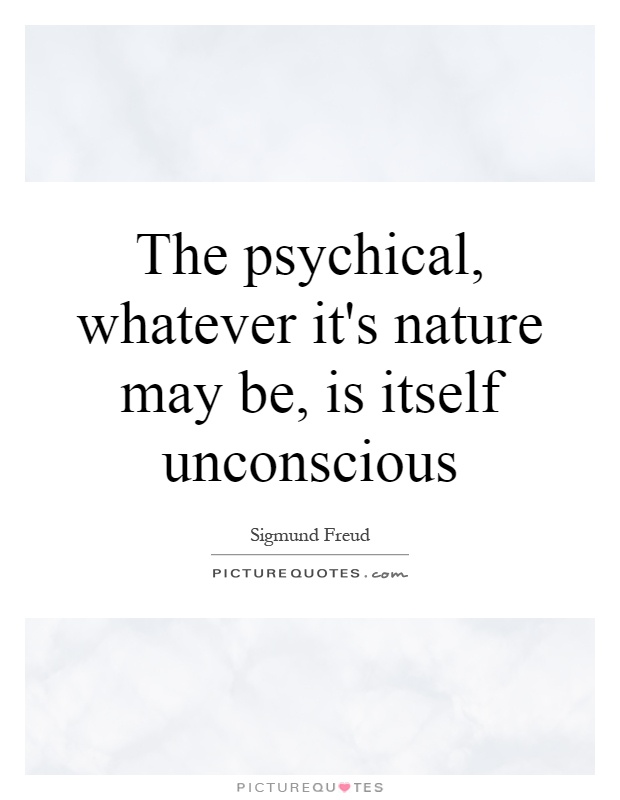The psychical, whatever it's nature may be, is itself unconscious

The psychical, whatever it's nature may be, is itself unconscious
Sigmund Freud, the father of psychoanalysis, revolutionized the field of psychology with his groundbreaking theories on the unconscious mind. One of his most famous quotes, "The psychical, whatever its nature may be, is itself unconscious," encapsulates his belief that much of human behavior is driven by unconscious desires, thoughts, and emotions.Freud's theory of the unconscious mind posits that there are three levels of consciousness: the conscious mind, the preconscious mind, and the unconscious mind. The conscious mind is the part of our mental processes that we are aware of, while the preconscious mind contains thoughts and memories that are not currently in our awareness but can be easily accessed. The unconscious mind, on the other hand, contains repressed memories, desires, and emotions that are too painful or threatening to be brought into conscious awareness.
According to Freud, the unconscious mind plays a significant role in shaping our behavior and personality. He believed that many of our thoughts, feelings, and behaviors are influenced by unconscious drives, such as the libido (sexual energy) and the death instinct (aggressive impulses). These unconscious forces can manifest themselves in various ways, such as dreams, slips of the tongue, and symptoms of mental illness.
Freud's concept of the unconscious mind has had a profound impact on the field of psychology and has influenced countless therapists and researchers. His ideas have been used to explain a wide range of psychological phenomena, from phobias and anxiety disorders to relationship problems and creative expression.












 Friendship Quotes
Friendship Quotes Love Quotes
Love Quotes Life Quotes
Life Quotes Funny Quotes
Funny Quotes Motivational Quotes
Motivational Quotes Inspirational Quotes
Inspirational Quotes